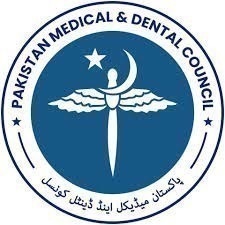Revised Minimum Passing Marks for Medical Students Announced

Pakistan Medical and Dental Council PMDC has implemented changes in the academic requirements for medical students across the country. The minimum passing score has now been revised from 70% to 65%, and the compulsory attendance rate has been eased from 90% to 85%. These adjustments apply to all academic years and come shortly after the previously stricter standards were introduced, offering greater flexibility to students. The students can get the latest updates that PMDC Revises Academic Standards and Introduces Tuition Fee Cap for Medical Students.
Government Moves to Control Tuition Costs in Private Medical Colleges
In a parallel effort to make medical education more affordable, the federal government has introduced a fixed tuition fee limit for MBBS and BDS programs in private medical and dental colleges. Acting on the recommendations of the Medical Education Reforms Committee, which operates under the supervision of the Deputy Prime Minister, the annual fee cap has been set at Rs 1.8 million. This step is designed to improve access to medical education for students from financially constrained backgrounds.
Multi-Stage Review Led to Fee Regulation Policy
The decision to regulate tuition fees followed a series of high-level meetings of the PMDC, held on June 4, 2022, December 10, 2023, and February 23, 2024. A dedicated subcommittee, led by Professor Dr. Masood Gondal, carried out a thorough review process that involved consultations with stakeholders including private colleges and the Pakistan Association of Medical Institutions PAMI. Their financial analysis led to the adoption of the Rs 1.8 million annual cap, linked to future inflation adjustments via the Consumer Price Index CPI.
Guidelines for Institutions Seeking Higher Tuition Fees
Private institutions wishing to exceed the capped tuition fee must provide strong evidence to justify the increase. This includes detailed financial records, performance indicators, and comparative data with peer institutions. Only applications supported by solid documentation will be reviewed, as the government intends to prevent arbitrary or excessive tuition hikes that could burden students.
Reforming Medical Education with a Focus on Equity
These combined measures—lowering academic thresholds and controlling educational costs—represent a broader effort to make medical education more inclusive and transparent. The reforms are especially significant for students from middle- and lower-income families. The government, under the leadership of the Deputy Prime Minister, has reaffirmed its commitment to transforming medical education through responsible policy and inclusive decision-making.















